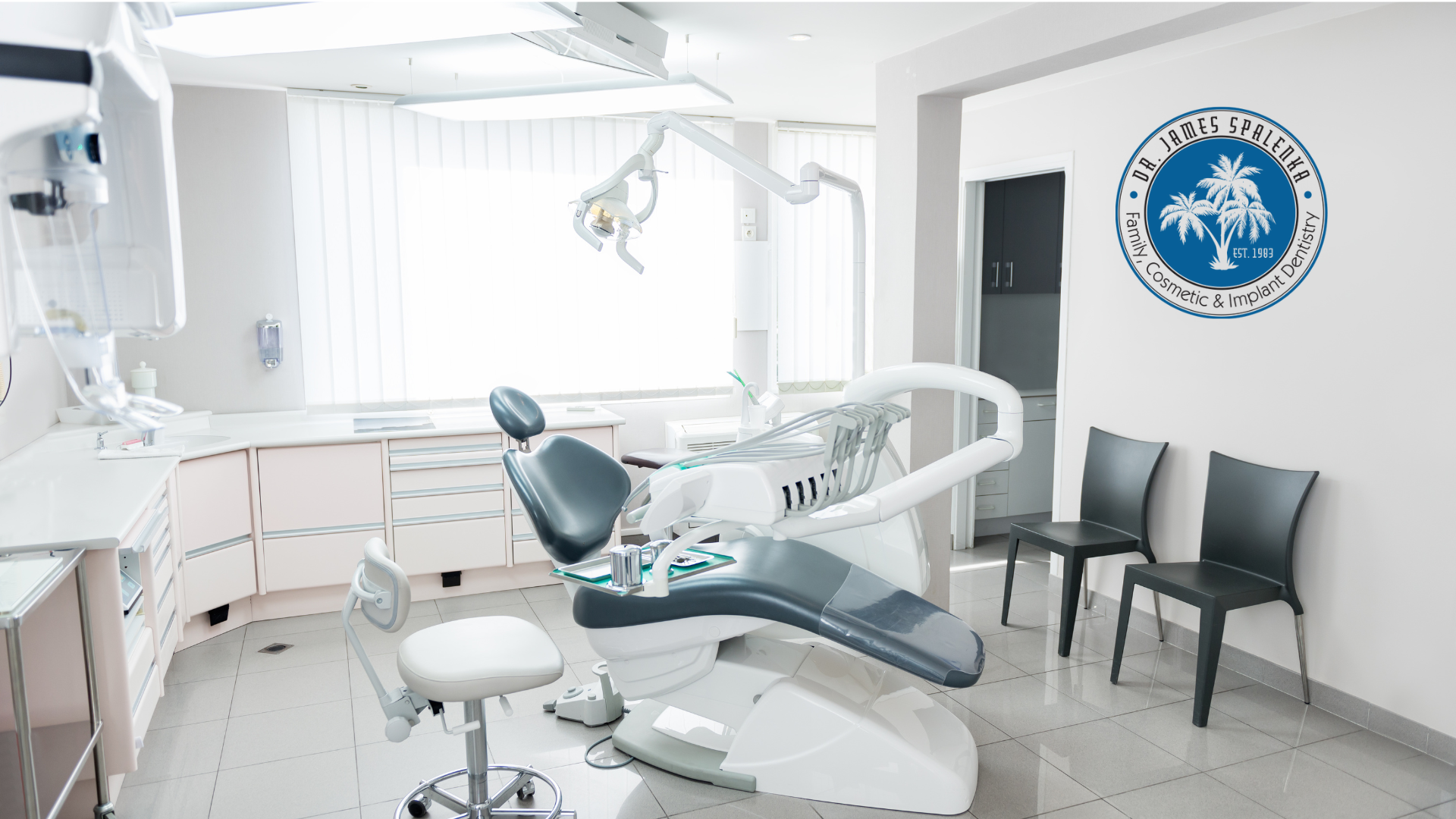
Get in touch
(858) 487-9444
ddssurfing@yahoo.com
**AVAILABLE FOR DENTAL EMERGENCIES**
DR. James Spalenka D.D.S., F.A.G.D.
Masters Degree in Implantology, Owner and Dentist
Overcoming Dental Anxiety in Rancho Bernardo San Diego
From Fear to Confidence:
A visit to the dentist can cause anxiety for many people, but for some, it can be a debilitating fear that prevents them from seeking necessary dental treatment.
In this blog, we will discuss dental anxiety, its causes, and the impact it can have on oral health. We will also provide strategies for managing dental anxiety and choosing a dental professional who understands and addresses this issue. It is important to address dental anxiety to ensure proper oral health and prevent avoidable complications.
The key points of this blog will include understanding dental anxiety, its impact on oral health, strategies for managing dental anxiety, and choosing a dental professional who can help. By addressing dental anxiety, patients can move from fear to confidence and prioritize their oral health.

Understanding Dental Anxiety
Dental anxiety is a fear or phobia related to visiting the dentist. It is a common issue that can be caused by a variety of factors, such as negative past experiences, fear of pain, or feeling a lack of control.
The physical symptoms of dental anxiety can include
sweating
,
trembling
,
increased heart rate
, and
panic attacks
. Emotionally, patients may feel
anxious
,
scared
, or even embarrassed about the state of their oral health.
According to the American Dental Association, up to
15% of Americans avoid seeing the dentist due to anxiety and fear
. This can lead to delayed dental treatment and more severe dental issues in the long run.
It's important to know that dental anxiety is a real issue that many people face, and there are strategies that we can use to help patients manage their fear and receive necessary dental treatment. As a dental professional, my priority is to ensure that my patients feel comfortable and safe in my care.
The Impact of Dental Anxiety
Dental anxiety can have a significant impact on oral health. Patients with dental anxiety may avoid visiting the dentist, which can lead to delayed dental treatment and the progression of dental issues. When dental problems are left untreated, they can become more severe and potentially lead to tooth loss, gum disease, and other complications.
Avoidance of necessary dental treatment is a common issue for patients with dental anxiety. Patients may postpone or cancel appointments due to fear and anxiety, leading to further delay in treatment. This can exacerbate dental issues and potentially lead to the need for more invasive and costly treatment down the line.
Untreated dental problems can have serious consequences. For example, untreated cavities can lead to tooth decay, which can cause pain and discomfort. Advanced tooth decay can lead to abscesses or infection, which can spread to other parts of the body and become life-threatening if left untreated. Gum disease can lead to tooth loss and even impact overall health, as it has been linked to an increased risk of heart disease and other health issues.
As dental professionals, we understand the impact that dental anxiety can have on oral health, and we are here to help. We work with patients to help manage their anxiety and provide a comfortable and safe environment for dental treatment. We encourage patients to prioritize their oral health and seek treatment as soon as possible to avoid the potential consequences of untreated dental problems.
Overcoming Dental Anxiety
There are several tips and strategies that patients can use to manage their dental anxiety. One approach is relaxation techniques, such as deep breathing or visualization, which can help patients calm their nerves during dental procedures. Distraction methods, such as listening to music or watching television, can also be helpful in diverting the patient's attention from their anxiety. It may also be helpful to schedule appointments at times when the patient feels most relaxed and to bring a support person with them to the appointment.
Communication is key in managing dental anxiety. Patients should feel comfortable expressing their concerns and needs to their dental professional. A dental professional can explain the procedures and what to expect, which can help reduce anxiety. Additionally, the dental professional can work with the patient to establish a signal to stop the procedure if the patient feels overwhelmed.
For patients with severe anxiety, sedation dentistry may be an option. Sedation dentistry uses medication to help the patient relax during the procedure. There are several types of sedation, including nitrous oxide (also known as laughing gas), oral sedation, and intravenous (IV) sedation. Sedation dentistry can help patients manage their anxiety and receive necessary dental treatment.
It's important to remember that dental anxiety is a common issue and that dental professionals are here to help. We encourage patients to discuss their anxiety with their dental professional and explore different strategies to manage their fear.
Choosing a Dental Professional
Finding a dental professional who understands and addresses dental anxiety is crucial for patients with this fear. A dental professional who is experienced in treating anxious patients can help alleviate fears and create a comfortable and safe environment for treatment. Dental professionals who are knowledgeable about dental anxiety can also offer strategies and techniques to manage anxiety during treatment.
When choosing a
dental professional
, it's important to research and read reviews from other patients who have dealt with dental anxiety. Look for a dentist who has experience treating anxious patients and who has a calm and patient demeanor. Consider scheduling a consultation with the dentist to discuss your concerns and see if you feel comfortable with them. Additionally, ask about the dentist's experience with sedation dentistry and their approach to managing anxiety during treatment.
Seeking out a dental professional who offers sedation dentistry can be beneficial for patients with severe anxiety. Sedation dentistry can help patients manage their anxiety and receive necessary dental treatment. When choosing a dental professional, consider their approach to sedation dentistry and their experience with the different types of sedation.
In conclusion, finding a dental professional who understands and addresses dental anxiety is crucial for patients with this fear. Patients should research dentists who are experienced in treating anxious patients and consider the benefits of sedation dentistry. A dental professional who prioritizes patient comfort and safety can help alleviate dental anxiety and promote good oral health.
Conclusion
Dental anxiety is a common fear that can have a significant impact on oral health. Patients with dental anxiety may avoid necessary dental treatment, which can lead to more severe dental issues in the long run. However, there are strategies for managing dental anxiety, such as relaxation techniques, communication with the dental professional, and sedation dentistry. Choosing a dental professional who understands and addresses dental anxiety is important for patients with this fear.
We encourage readers who struggle with dental anxiety to take steps to address their fear and seek out a dental professional who can help. Dental professionals are trained to manage anxiety and create a comfortable and safe environment for dental treatment. Prioritizing oral health is crucial for overall health and well-being.
For additional resources on managing dental anxiety and finding a dental professional who understands this fear, we recommend consulting with the American Dental Association or the Dental Anxiety Network.
We hope that this blog has been helpful in understanding dental anxiety and strategies for managing it. Remember, dental professionals are here to help alleviate anxiety and promote good oral health.
SERVICES
Contact Details
James Spalenka, D.D.S., F.A.G.D.
16766 Bernardo Center Dr., Ste. 105 San Diego, CA 92128 USA
CALL US: (858) 487-9444
Business Hours
Monday - Friday
9:00 am - 5:00 pm
Saturday
By Confirmed Appointment
Sunday: Closed
© Copyright 2024 | All Rights Reserved | James Spalenka, D.D.S., F.A.G.D.


